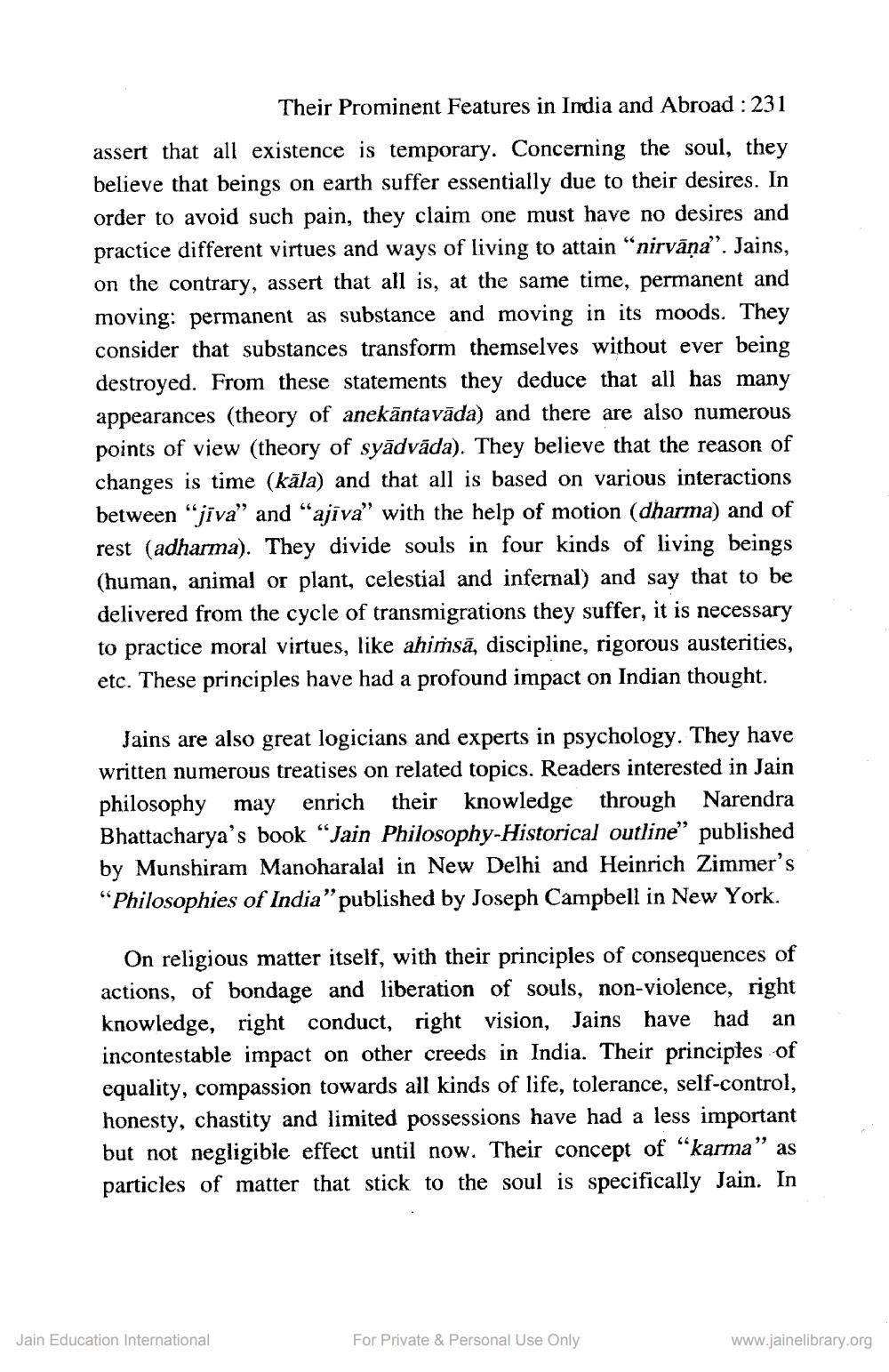________________
Their Prominent Features in India and Abroad : 231 assert that all existence is temporary. Concerning the soul, they believe that beings on earth suffer essentially due to their desires. In order to avoid such pain, they claim one must have no desires and practice different virtues and ways of living to attain "nirvana”. Jains, on the contrary, assert that all is, at the same time, permanent and moving: permanent as substance and moving in its moods. They consider that substances transform themselves without ever being destroyed. From these statements they deduce that all has many appearances (theory of anekāntavāda) and there are also numerous points of view (theory of syādvāda). They believe that the reason of changes is time (kāla) and that all is based on various interactions between “jiva” and “ajīva" with the help of motion (dharma) and of rest (adharma). They divide souls in four kinds of living beings (human, animal or plant, celestial and infernal) and say that to be delivered from the cycle of transmigrations they suffer, it is necessary to practice moral virtues, like ahiṁsā, discipline, rigorous austerities, etc. These principles have had a profound impact on Indian thought.
Jains are also great logicians and experts in psychology. They have written numerous treatises on related topics. Readers interested in Jain philosophy may enrich their knowledge through Narendra Bhattacharya's book “Jain Philosophy-Historical outline” published by Munshiram Manoharalal in New Delhi and Heinrich Zimmer's “Philosophies of India" published by Joseph Campbell in New York.
On religious matter itself, with their principles of consequences of actions, of bondage and liberation of souls, non-violence, right knowledge, right conduct, right vision, Jains have had an incontestable impact on other creeds in India. Their principles of equality, compassion towards all kinds of life, tolerance, self-control, honesty, chastity and limited possessions have had a less important but not negligible effect until now. Their concept of “karma” as particles of matter that stick to the soul is specifically Jain. In
Jain Education International
For Private & Personal Use Only
www.jainelibrary.org




